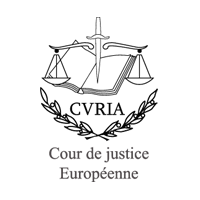The facts
Company A has been charged by another company (the Supplier) with 5% VAT on services that are to be treated as outside the scope of VAT.
The question
May such input VAT be credited (recovered) by the company?
The summary
After considering the facts and the analysis below, we opine as follows:
- The supplier has to include in the VAT return the full amount of output VAT that has been wrongly charged. Therefore, we believe that the FTA must not disallow the Company from recovering this overcharged VAT.
- However, the FTA may disagree. Such precedents exist.
- The Oman and KSA tax authorities have expressed their position clearly: incorrectly charged VAT is not deductible. As OTA, ZATCA and FTA operate within the Common GCC VAT agreement, it is likely that the FTA will share the position of its colleagues.
- The amendment in VAT legislation in the UAE effective from 2023 may protect the customer in a potential dispute with the FTA;
- To eliminate the risk the Company may request a credit note from the Supplier and recover VAT illegally charged.
The analysis
1. Clause 4 of Art. 65 of the VAT Law sets out:
|
Up to January 1, 2023 |
After January 1, 2023 |
|
Any Person who receives an amount as Tax pursuant to any document issued by him shall pay this amount to the Authority even if it is not due. https://tax.gov.ae/DataFolder/Files/Pdf/VAT-Decree-Law-No-8-of-2017.pdf |
Any Person receiving an amount as Tax or issuing a Tax Invoice in respect of an amount, must pay such amount to the Authority, and this amount shall be regarded as being similar to Due Tax under the provisions of this Decree-Law. As amended by Federal Decree-Law No. 18 issued 26 Sep 2022 |
The difference is that:
- The earlier wording doesn’t treat wrongly charged tax as due. Rather, it recognizes that tax is not due but shall be paid in spite of that.
- In contrast, the current wording treats any amount charged as VAT in a tax invoice as Due Tax.
2. Before 2023, this obligation to pay wrongly charged VAT had not hindered the FTA from disallowing the buyer from recovering the amount of such VAT.
Section 2.2 of VAT Returns Guide elucidates: ‘From the recipient’s point of view, “input tax” is the VAT added to the price by the supplier when the recipient purchases goods or services which are subject to VAT. If the recipient is registered for VAT then they may be able to recover this input tax from the FTA…’.
From 2023, this position is more favorable for the customer since the amount charged as VAT is to be treated as Due Tax for the supplier, i.e. as ‘tax that is calculated and imposed pursuant to this Decree-Law’ Article 1 of VAT Law.
Article 1 of the VAT law determines ‘Recoverable Tax’ as ‘amounts that have been paid and that the Authority may return to the Taxpayer pursuant to the provisions of this Decree-Law’.
However, the FTA may object, saying that such amount has to be returned to the supplier rather than to his customer. Clause 1 of Article 61 of VAT Law envisages that “a Registrant shall adjust Output Tax after the date of supply…’
- ‘… if the Tax treatment of the supply has changed due to a change in the nature of the supply’ (para (b));
- ‘if the Tax was charged or Tax treatment was applied in error’ (para (b)).
Clause 3 of this Article sets forth that ‘in order to adjust the Output Tax any of the following conditions shall be met:
- If the Output Tax amount charged on the supply stated in the Tax Invoice does not match that should actually be charged on the supply as a result of any of the events mentioned in Clause 1 of this Article.
- If the Registrant submits a Tax Return for the Tax Period during which the supply occurred and an amount was incorrectly calculated as being the amount of Output Tax due for this supply as the result of any of the events mentioned in Clause 1 of this Article’.
A supplier shall adjust wrongly charged VAT via a Tax Credit Note. Art. 62(2) of the VAT Law. Art. 62(2) of the VAT Law.
According to Art. 63 of the VAT Law ‘if the Registrant issues a Tax Credit Note to correct Output Tax charged to the Recipient of Goods or Recipient of Services, the Tax stated in the Tax Credit Note shall be considered as:
- ‘A reduction of the Output Tax for the Registrant of this Tax Credit Note’.
- ‘A reduction of the Input Tax by the Recipient of Goods or Recipient of Services for the Tax Period during which the Tax Credit Note was received’.
3. The rules cited above may lead the FTA to the conclusion that:
- the supplier has to pay VAT charged by mistake or through a lack of clarity,
- the amount paid by the supplier is not recoverable. In due course it shall be returned to the supplier rather than reimbursed to its customer;
- thus, after a mistake has been laid bare or clarity reached, the supplier shall issue a Credit Note;
- the parties shall adjust their output and input tax accordingly and the supplier shall repay the tax charged by mistake to the customer and have it refunded from the FTA.
4. Would such a potential claim from the FTA be egregious? Hardly. The same issue has been resolved by the CJEU in the case of Genius Holding BV v. Staatssecretaris van Financië ECJ, Dec. 13 1989, Case C-342/87, Genius Holding BV v. Staatssecretaris van Financië, [1989]
 In this case, the Court considered:
In this case, the Court considered:
- a case where subcontractors included in their tax invoice an amount of VAT which they are not liable to charge and pay;
- the question ‘Does the right to deduct provided for in the Sixth Directive apply to the tax which is due solely because it is mentioned on the invoice?’.
To answer this question, the Court had to interpret Article 17(2)(a) of the Sixth Directive This edition of 1977 of the EU VAT Directive is no longer in force, having been repealed on 31 December 2006 by the EU Council Directive 2006/112/EC of 28 November 2006 on the common system of VAT.
which enables a taxable person ‘to deduct from the tax which he is liable to pay ‘value-added tax due or paid in respect of goods or services supplied or to be supplied to him by another taxable person”…’
The arguments put forward to protect the recovery of wrongly charged VAT were as follows:
- Since, under Article 21(1)(c) of the Sixth Directive, any person who mentions VAT on an invoice or another document serving as an invoice is liable to pay that tax even if it is not legally due, the exclusion in such cases of the right to deduct implies the taxation of an activity in a manner contrary to the principle of the neutrality of VAT.
- Furthermore, that interpretation would lead to traders being required to check whether the VAT being invoiced is legally due, which requires an assessment of the rate of tax chosen and a knowledge of the exemptions granted. It would therefore be an obstacle to the efficient conduct of commercial relations.
The EUCJ turned these arguments down. The rationale was this:
- ‘the right to deduct may be exercised only in respect of taxes actually due, that is to say’, in respect of ‘taxes corresponding to a transaction subject to VAT or paid in so far as they were due’.
- ‘that interpretation of Article 17(2)(a) is confirmed by the other provisions of the Sixth Directive. According to Article 18(1)(a), to exercise his right to deduct, the taxable person must hold an invoice, drawn up in accordance with Article 22(3)(b), which requires the invoice to state clearly the price exclusive of tax and the corresponding tax at each rate as well as any exemptions. In accordance with that provision, mention of the tax corresponding to the supply of goods and services is an element in the invoice on which the exercise of the right to deduct depends. It follows that that right cannot be exercised in respect of tax which does not correspond to a given transaction, either because that tax is higher than that legally due or because the transaction in question is not subject to VAT’.
- ‘Furthermore, according to Article 20(1)(a), 'the initial deduction shall be adjusted…, in particular... where that deduction was higher or lower than that to which the taxable person was entitled'. It is noteworthy that Article 20(1)(a) had provided only for this general and obvious rule. However, the EUCJ interpreted this rule in this way: ‘It follows from that provision that where the deduction initially carried out does not correspond to the amount of the tax legally due, it has to be adjusted, even if it corresponds to the amount of the tax mentioned on the invoice or other document serving as an invoice’.
- ‘That interpretation of Article 17(2)(a) is the one which makes it best adapted to prevent tax evasion, which would be made easier if any tax invoiced could be deducted’.
- ‘Finally, with regard to the argument put forward by the appellant in the main proceedings and the Commission to the effect that the fact of limiting the exercise of the right to deduct to taxes corresponding to the supply of goods and services calls into question the neutrality of VAT, it should be pointed out that, in order to ensure the application of that principle, it is for the Member States to provide in their internal legal systems for the possibility of correcting any tax improperly invoiced where the person who issued the invoice shows that he acted in good faith’.
- ‘The answer to the first question should therefore be that the right to deduct … does not apply to tax which is due solely because it is mentioned on the invoice’.
Article 61(3) of the UAE VAT Law ‘provide[s] in … internal legal systems for the possibility of correcting any tax improperly invoiced’. It sets forth that the Output VAT shall be adjusted if ‘the Output Tax amount charged on the supply stated in the Tax Invoice does not match the Tax that should actually be charged on the supply as a result of any of the events mentioned in Clause 1 of this Article’. Clause 1(e) covers scenarios where ‘the Tax was charged or Tax treatment was applied in error’. Therefore, pertinent arguments from the EUCJ’s rationale could make the case for the FTA.
The precedent referred to hadn’t become outdated with the passing years. The EUCJ returned to this issue in Case C-35/05 Reemtsma Cigarettenfabriken GmbH v Ministero delle Finanze [2007] ECR I-2425. It had been questioned ‘Must Articles 2 and 5 of the Eighth Directive … in so far as they make reimbursement to a non-resident recipient of goods or services conditional on use of the goods and services for the purposes of taxable transactions, be interpreted as meaning that even VAT that is not due, and has been charged incorrectly as output tax and paid to the revenue authorities, is refundable?’
The Court established a fact, which is also relevant for the UAE VAT system: ‘… the common system of VAT does not expressly provide for the case where such tax has been invoiced in error’.
Reemtsma takes the view that ‘the fact that the right to reimbursement is restricted to deductible VAT only does not mean that the tax which was unduly invoiced and paid to the tax authorities is not reimbursable. Article 21(1)(c) of the Sixth Directive… precludes any principle that the right to deduct may be exercised only in respect of taxes actually due. Reemtsma submits that the right to deduct that tax is one of the main instruments ensuring the protection of the principle of neutrality of VAT and, therefore, such a right cannot be restricted’.
First of all, the EUCJ referred to its Genius Holding Judgement and ruled that this precedent ‘is applicable in the context of the Eighth Directive’. The Court reiterated that ‘the right to deduct… cannot be extended to VAT unduly invoiced and paid to the tax authorities’.
5. Can these precedents fit into the GCC Common VAT Agreement landscape?
 The clarifications from the Oman Tax Authority may provide an answer to this question.
The clarifications from the Oman Tax Authority may provide an answer to this question.
In its Input Tax Taxpayer Guide (May 2023), the OTA came up with ‘common examples of amounts that are not input tax’. First in the list is ‘an amount called VAT is incorrectly charged (such as VAT charged on a zero-rated food item, or VAT charged by a non-registered supplier)’.
 In Saudi Arabia, ZATCA took a similar stand. In section 4.2 of its Input Tax VAT Guideline, ZATCA clarifies:
In Saudi Arabia, ZATCA took a similar stand. In section 4.2 of its Input Tax VAT Guideline, ZATCA clarifies:
‘The VAT charged by the KSA supplier must be correctly charged to constitute Input Tax and to be available for deduction. In case a supplier charges VAT incorrectly or without a legal basis, this “VAT” is not deductible for the Customer. It is the supplier's primary responsibility to determine the correct VAT treatment for a supply. However, the Customer should be aware of cases where the VAT paid is clearly not correct - as an Input Tax deduction will not be available in these cases’.
6. All the above drama should not deprive the customer of hope for recovery. The 2023 amendment to Art. 65(4) of the VAT Law could be a bedrock for such hope. The UAE Law treats wrongly charged tax as Due Tax … ‘and this amount shall be regarded as being similar to Due Tax under the provisions of this Decree-Law’. Neither KSA nor Oman has introduced in its VAT legislation a provision with similar effect. Therefore, from 2023 taxpayers in the UAE have unique legal grounds to build their case with.
The disclaimer
Pursuant to the MoF’s press-release issued on 19 May 2023 “a number of posts circulating on social media and other platforms that are issued by private parties, contain inaccurate and unreliable interpretations and analyses of Corporate Tax”.
The Ministry issued a reminder that official sources of information on Federal Taxes in the UAE are the MoF and FTA only. Therefore, analyses that are not based on official publications by the MoF and FTA, or have not been commissioned by them, are unreliable and may contain misleading interpretations of the law. See the full press release here.
You should factor this in when dealing with this article as well. It is not commissioned by the MoF or FTA. The interpretation, conclusions, proposals, surmises, guesswork, etc., it comprises have the status of the author’s opinion only. Like any human job, it may contain inaccuracies and mistakes that I have tried my best to avoid. If you find any inaccuracies or errors, please let me know so that I can make corrections.

